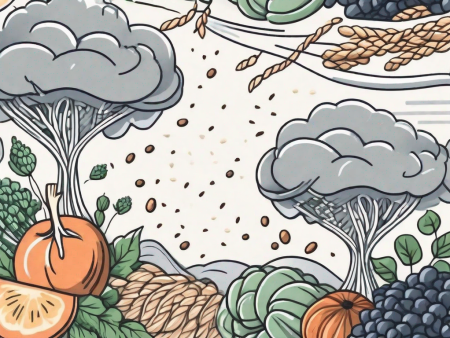Discover effective strategies and coping mechanisms for dealing with the loss of peers or loved ones.
Dealing with the Loss of Peers or Loved Ones
Losing someone close to you is one of the most difficult challenges we face in life. Whether it’s a peer or a loved one, the experience can be overwhelming and leave us feeling lost, heartbroken, and unsure of how to move forward. In this article, we will explore various aspects of grief and loss, as well as provide coping mechanisms and support systems to help you navigate through this challenging time.

Understanding Grief and Loss
When we lose someone we care about, the emotional impact can be profound. It’s important to recognize that everyone experiences grief differently, and there is no right or wrong way to grieve. The pain may come in waves, and it’s normal to feel a range of emotions, including sadness, anger, guilt, and even relief.
Additionally, losing a loved one can have psychological effects, especially when the loss is unexpected or traumatic. It can disrupt our sense of identity and security, leading to anxiety, depression, and even post-traumatic stress disorder (PTSD).
Understanding the complexities of grief and loss can help us navigate through the challenging emotions and experiences that come with it. Grief is not a linear process, but rather a unique journey for each individual. It is a natural response to loss, and it is important to give ourselves permission to grieve in our own way and at our own pace.
One aspect of grief that many people experience is a sense of emptiness and longing. When we lose someone we love, there is a void left behind that can be difficult to fill. It is important to acknowledge this emptiness and allow ourselves to mourn the loss. This may involve creating rituals or finding ways to honor and remember the person we have lost.
Another common experience in grief is the feeling of being overwhelmed by emotions. It is not uncommon to feel a rollercoaster of emotions, ranging from sadness and despair to anger and guilt. These emotions may come and go in waves, and it is important to be patient and gentle with ourselves as we navigate through them.
The Emotional Impact of Losing a Loved One
Grief is a complex emotion that can manifest in various ways. Some may experience intense sadness, while others may feel anger towards the person they’ve lost or towards themselves for not being able to prevent the loss. It’s essential to allow yourself to feel all these emotions, as suppressing them may prolong the grieving process.
Remember that it’s okay to cry and express your emotions. Talking to someone you trust can also provide a much-needed outlet for your feelings. Surrounding yourself with supportive friends and family members can help you process your emotions and find comfort during this difficult time.
In addition to the emotional impact, losing a loved one can also have physical effects on our bodies. Grief can manifest in physical symptoms such as fatigue, changes in appetite, and difficulty sleeping. It is important to take care of ourselves physically during this time by getting enough rest, eating nutritious meals, and engaging in gentle exercise.
Furthermore, grief can have a profound impact on our relationships. It is not uncommon for relationships to change or evolve after the loss of a loved one. Some friendships may become stronger, while others may fade away. It is important to be patient with ourselves and others as we navigate these changes and find new ways to connect and support each other.
The Psychological Effects of Losing a Peer
Losing a peer can be just as challenging as losing a loved one, albeit in a different way. Losing a friend or someone from our peer group can remind us of our own mortality and make us question our own sense of purpose and belonging. It may even raise feelings of survivor’s guilt, as we wonder why we are still here while they are not.
In such cases, it’s important to seek support from friends, family, or even a professional counselor who can help you navigate your emotional journey. They can provide a safe space for you to explore your feelings and help you develop coping strategies to navigate through the grief.
Additionally, losing a peer can also lead to a reevaluation of our own goals and aspirations. It may prompt us to reflect on our own lives and make changes that align with our values and priorities. This process of self-reflection can be both challenging and transformative, as we learn to navigate life without our peer and find new meaning and purpose.
It is important to remember that grief is a personal and unique experience. There is no right or wrong way to grieve, and it is important to be gentle with ourselves as we navigate through the ups and downs of the grieving process. Seeking support from others and engaging in self-care activities can help us find healing and meaning in the midst of loss.
Coping Mechanisms for Grief
Grief is a natural response to loss, but finding healthy ways to cope is essential for our well-being. Everyone copes with grief differently, so it’s important to find strategies that work for you. Here are a few coping mechanisms you may find helpful:
Emotional Coping Strategies
Allow yourself to grieve and express your emotions openly. It’s normal to feel a wide range of emotions when dealing with grief, such as sadness, anger, guilt, or even relief. Give yourself permission to experience these emotions and acknowledge that they are a natural part of the grieving process.
One effective way to cope with grief is through writing in a journal. Putting your thoughts and feelings on paper can provide a sense of release and help you make sense of your emotions. It can also serve as a valuable tool for self-reflection and personal growth.
Another helpful coping mechanism is to join a support group. Connecting with others who have experienced similar losses can provide a sense of understanding and validation. Sharing your story and listening to others can offer comfort and support during this difficult time.
Engaging in creative outlets such as art, music, or poetry can also be therapeutic. These forms of expression allow you to channel your emotions into something tangible and meaningful. Whether it’s painting, playing an instrument, or writing poetry, finding a creative outlet can provide solace and a sense of purpose.
Remember that there is no timeline for healing, so be patient with yourself as you navigate through the grieving process. Allow yourself to feel whatever emotions arise and give yourself permission to heal at your own pace.
Physical Coping Techniques
Taking care of your physical well-being can also help with the grieving process. When we experience loss, it’s common for our physical health to be affected as well. Engaging in regular exercise can help release pent-up emotions and boost your mood.
Consider incorporating activities such as walking, jogging, yoga, or dancing into your routine. Not only will these activities help you stay physically active, but they can also serve as a distraction from your grief and provide a sense of accomplishment.
In addition to exercise, prioritizing healthy eating habits is important. During times of grief, it’s easy to turn to comfort foods or neglect proper nutrition. However, nourishing your body with wholesome foods can provide the energy and nutrients needed to support your overall well-being.
Lastly, ensure you’re getting enough rest. Grief can be emotionally and physically draining, so it’s crucial to prioritize sleep. Establish a bedtime routine that promotes relaxation and create a sleep-friendly environment. Getting enough rest will help you maintain your energy levels and cope with grief more effectively.
The Role of Support Systems in Grief Management
During times of grief, the support of family and friends can be instrumental in helping us heal. They provide a listening ear, a shoulder to cry on, and a sense of companionship during a time when we may feel isolated and alone.
Grief is a complex and individual experience, and having a support system in place can make a significant difference in how we navigate through it. The importance of family and friends cannot be overstated. They offer emotional support, understanding, and empathy, which can help us process our feelings and find solace in knowing that we are not alone.
When we experience loss, it is natural to withdraw and isolate ourselves from others. However, reaching out to our loved ones and letting them know what we’re going through is crucial. By opening up and sharing our grief, we allow them to be there for us in their own unique ways. Whether it’s through a simple phone call, a heartfelt conversation, or spending quality time together, the support of our loved ones can provide comfort and a sense of belonging during this challenging time.
The Importance of Family
Family plays a significant role in grief management. They are the ones who have known us the longest and have shared countless memories with us and our loved ones. They understand our history, our relationships, and the impact of the loss on our lives. Their presence and support can bring a sense of continuity and stability during a time when everything feels uncertain.
Family members can also provide practical assistance, such as helping with funeral arrangements, organizing memorial services, or taking care of daily tasks that may feel overwhelming in the midst of grief. Their involvement can alleviate some of the burdens and allow us to focus on our emotional healing.
The Power of Friends
Friends are often considered the family we choose. They are the ones who have seen us through various stages of life, and their friendship can be a source of strength during times of grief. Friends offer a different perspective and can provide a fresh outlook on our situation. They may have experienced similar losses or can simply offer a listening ear without judgment.
Friendships can be a lifeline during grief, as they provide a sense of normalcy and a break from the heaviness of mourning. Engaging in activities with friends, whether it’s going for a walk, watching a movie, or simply sharing a meal, can help distract us from our pain and remind us that life still holds moments of joy and connection.
Seeking Professional Help
While leaning on loved ones is crucial, there are times when professional help may be necessary. Grief is a complex emotional process, and it can be overwhelming to navigate on our own. A licensed therapist or grief counselor can provide specialized support, helping us navigate our grief and develop healthy coping mechanisms.
Professional help can offer a safe and non-judgmental space to express our emotions, explore our thoughts, and gain insights into our grief journey. Therapists and counselors are trained to provide guidance and support tailored to our individual needs, helping us process our grief in a healthy and constructive way.
Additionally, professional help can be especially beneficial if we find it difficult to function in our daily life or if our grief becomes prolonged and interferes with our overall well-being. They can assist us in identifying any underlying issues that may be exacerbating our grief and provide strategies to address them.
Remember, seeking professional help is not a sign of weakness but rather a proactive step towards healing. It is important to prioritize our mental and emotional well-being during times of grief.
Moving Forward After Loss
As time passes, you may find yourself in a place of acceptance and healing. This doesn’t mean that you forget or stop missing the person you lost, but rather that you begin to find a new normal. Here are a few ways to move forward:
Acceptance and Healing
Accept that grief is a journey and healing takes time. It’s important to honor the memory of your loved one while also allowing yourself to embrace new experiences and look towards the future. You can create a memorial to celebrate their life or engage in activities that bring you joy and a sense of purpose.
Rebuilding Your Life After Loss
While it may feel daunting, keep in mind that rebuilding your life after loss is possible. Take things at your own pace and focus on self-care. Engage in activities that bring you happiness, connect with supportive communities, and consider setting new goals for yourself.
Preventing Grief from Leading to Depression
Grief can sometimes lead to depression if not properly addressed. It’s crucial to recognize the signs of depression and take proactive steps to prevent its onset. Here’s how:

Recognizing the Signs of Depression
If you find yourself experiencing persistent feelings of sadness, hopelessness, or lack of interest in activities you once enjoyed, it’s important to consider the possibility of depression. Other signs may include changes in appetite, sleep disturbances, difficulty concentrating, or thoughts of self-harm. Reach out to a mental health professional if you notice these symptoms persisting.
Strategies to Prevent Depression After Loss
Engage in self-care activities that promote mental well-being, such as practicing mindfulness, maintaining a healthy routine, and seeking support from friends and family. Find healthy ways to honor your loved one’s memory while also focusing on your own growth and happiness.
Remember, there is no right or wrong way to navigate through grief, and everyone’s journey is unique. Give yourself the time and space needed to heal, and know that support is available if and when you need it.








Very interesting details you have observed, appreciate it for posting.Blog range
excellent post, very informative. I ponder why the other specialists of this sector don’t notice this. You should proceed your writing. I’m sure, you’ve a great readers’ base already!